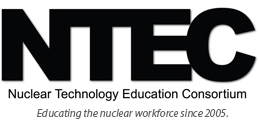N02: Nuclear Fuel Cycle
This unit aims to:
To introduce and develop subject knowledge and theoretical, conceptual and analytical skills in the nuclear fuel cycle, which encompasses mining, fuel manufacture, use in power stations, reprocessing/ storage and recycle or ultimate disposal.
Brief description of the unit
The unit features lectures delivered by both UCLan academic staff and industry practitioners across various subject areas. This combination allows students to understand theoretical concepts and witness their practical applications. Before the course commences, students receive pre-course learning materials. During the course, they participate in short tutorial and discussion sessions to gauge their understanding. Furthermore, supplementary references accompany the lectures. The assignments are designed to strengthen learning outcomes and assess students’ comprehension.
Intended Learning Outcomes
| Analyse the processes involved in both the front- and back-ends of the once-through fuel cycle, evaluating their environmental and economic implications |
| Evaluate the advantages and disadvantages of fuel processing, reprocessing, and spent fuel management (SFM), and justify why SFM is increasingly considered the primary option. |
| Examine the types and quantities of waste generated at each stage of the nuclear fuel cycle, assess strategies for waste segregation and disposal, and critically evaluate their environmental and societal implications. |
| Identify the technological and regulatory challenges associated with emerging energy forms such as MOX, fast reactors, nuclear fusion, and advanced small modular reactors (SMRs), and assess their potential benefits and risks. |
N.B. this course unit does not include pre-printed lecture material: these will be found on the relevant Blackboard site.
